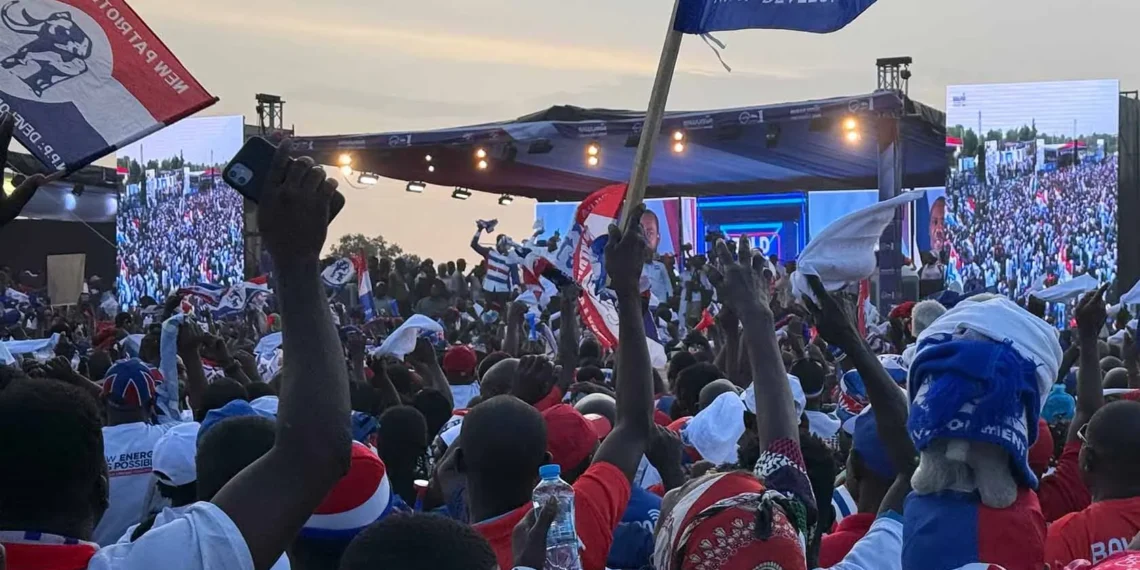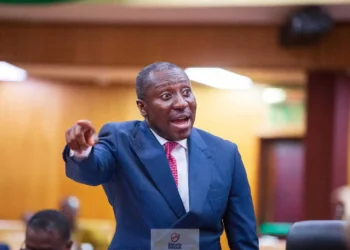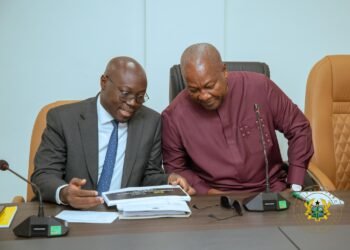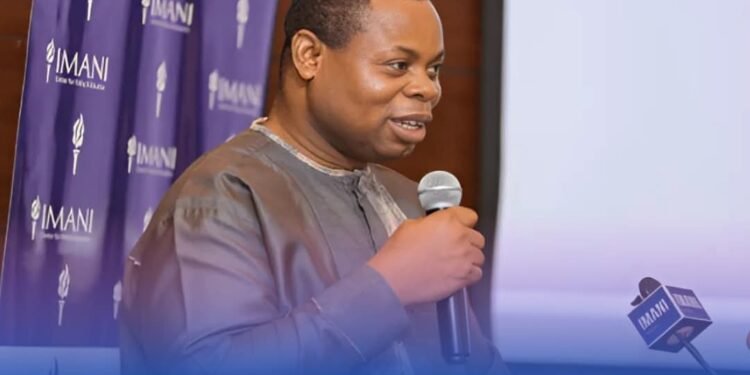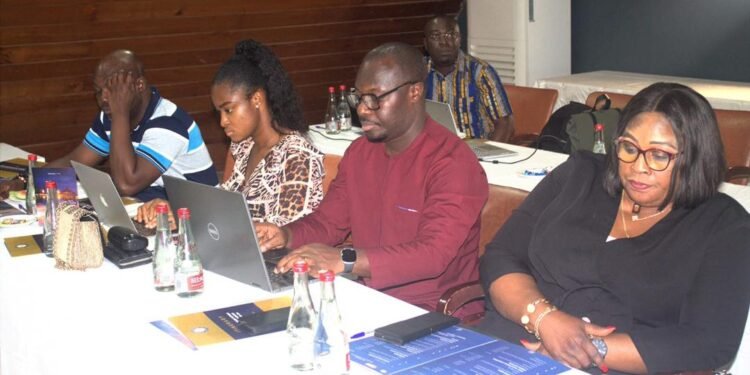The IMANI Center for Policy and Education has emphasized that the NPP primaries, set for January 31, 2026, represent more than just a simple party exercise.
In the view of the respected think tank, this early leadership selection is a necessary reset for a political organization facing its most vulnerable period in decades.
Following its defeat in the 2024 general elections, the New Patriotic Party (NPP), once celebrated for its leadership in liberal economic policies and democratic resilience, now stands at what IMANI Africa described as a defining crossroads.
The party’s loss was not simply a political setback but, in their assessment, an existential crisis.
“For a party that has long claimed the mantle of liberal economic stewardship and democratic resilience, the silence after the fall has been telling. But out of silence, direction must emerge.
“There are those who argue that the primaries should be delayed until party reforms are fully enacted. But this ignores the deeper malaise. Ghanaian political strategist and leading figure of the NPP, Nana Akomea was spot on: ‘The party will never close ranks in unity until the flagbearer election is over.’”
IMANI Center for Policy and Education
In their assessment, the NPP’s problem is not the absence of processes but rather the lack of an anchor. Without leadership, IMANI argued, reforms become impossible.
“A leaderless party cannot renew. It can only rearrange the ruins,” the think tank observed, adding that the primaries are not a distraction from healing, but rather a “precondition for it.”
While some view the early NPP primaries as premature, IMANI countered that such a stance overlooks the significant restructuring efforts already underway.
Meanwhile, the party plans to elect more than 317,000 grassroots officers, including over 286,000 polling station executives and 31,000 electoral area executives.

In a significant development, IMANI highlighted that for the first time, these grassroots members will make up nearly 95% of the voting pool in the presidential primaries.
At the heart of these changes are proposed constitutional reforms, set for a vote at the July 19, 2025, Delegates Conference.
IMANI explained that these reforms aim to further broaden participation by incorporating all card-bearing ministers since 2000, all MPs both past and present, all Metropolitan, Municipal, and District Chief Executives (MMDCEs) since 1997, and all party executives from various structural levels since 1992.
In their analysis, IMANI argued that this process represents “reform as a structural recalibration”, combining grassroots momentum with the party’s historical leadership to redefine how power is accessed and shared internally.
NPP Primaries Clear Runway For Candidates
IMANI Africa further pointed out that holding the NPP primaries early will allow candidates sufficient time to engage with this restructured base. As of June 2025, think tank observed, several key figures have emerged as likely contenders.
Dr. Mahamudu Bawumia, former Vice President, who led the party into the 2024 defeat, has signaled his return bid. His recent “Thank You Tour” positioned him as a candidate blending apology with continuity.
Kennedy Agyapong, despite a third-place finish in the previous race, remains a significant force. His continued criticism of what he calls the party’s “captive elite” resonates with many younger supporters, positioning him as the anti-establishment candidate.

Dr. Yaw Osei Adutwum launched his campaign in June 2025, bringing a technocratic approach focused on education, STEM, and innovation. His platform asserts that Ghana’s next transformation must be “intellectual, not transactional.”
Bryan Acheampong and Joe Ghartey are also expected to enter the race, each drawing on different traditions within the party’s operational and intellectual spheres.
What unites these contenders, according to IMANI, is a recognition that the NPP cannot afford to drift through the rebuilding process.
Including both new grassroots leaders and previously marginalized party figures, the emerging primary process demonstrates a shift in how unity is conceptualized.
The party is no longer prioritizing closeness to existing power centers but is working to integrate networks from its broader historical base.
“This may, rightly, be seen as a numbers game—but numbers matter when legitimacy is fragile. The new delegate structure offers an opportunity not simply to decide who leads, but to debate how that person should lead. It invites coalition-building across eras and constituencies.
“The NPP is not just rebuilding for 2028. It is deciding whether it can remain Ghana’s most durable center-right alternative. An early primary, framed around inclusion and guided by a clear reform mandate, is not a gamble.”
IMANI Center for Policy and Education
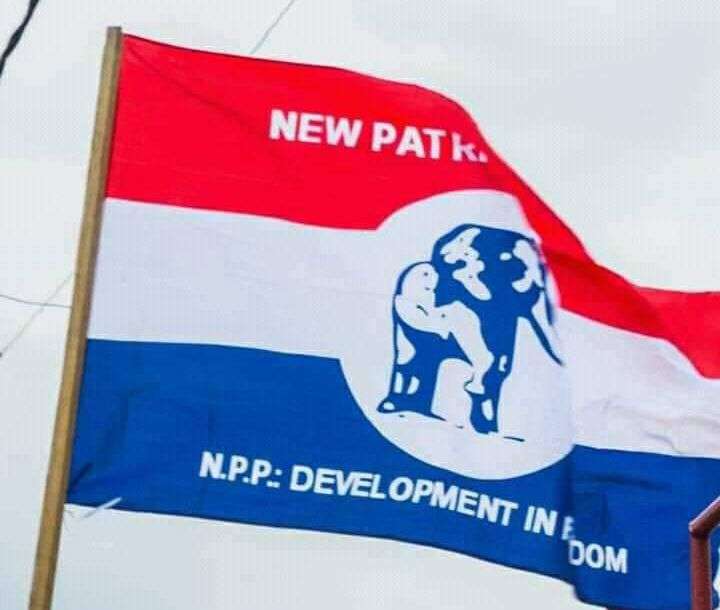
From IMANI’s perspective, the stakes are high. The early NPP primaries, built around inclusion and reform, are seen not as a risk but as “a reckoning—and possibly the beginning of the party’s most significant internal transformation yet.”
Looking ahead, IMANI advised the NPP to make full use of the period between the July 2025 Delegates Conference and the January 2026 primaries.
Beyond finalizing constitutional reforms, the party must foster a narrative of unity that draws together grassroots leaders, legacy figures, and aspiring candidates under a shared vision for renewal.
This involves ensuring transparency in the electoral process, promoting open dialogue among contenders, and investing in civic education to help new delegates understand both their power and their responsibilities.
If successful, IMANI believes this process will yield more than a new flagbearer. It could, in their view, reforge the party’s identity around “inclusion, reform credibility, and long-term cohesion.”
READ ALSO: Philippine President To Meet Trump Over Trade Deal

